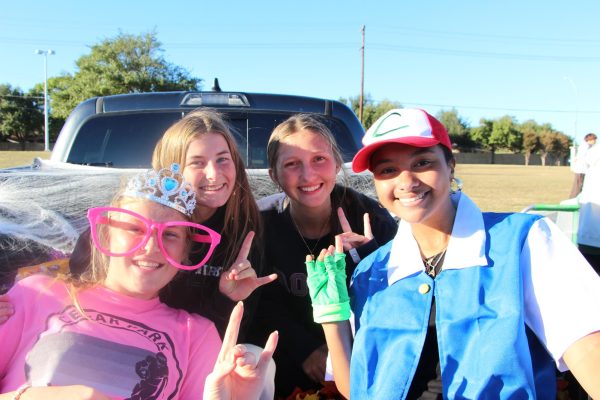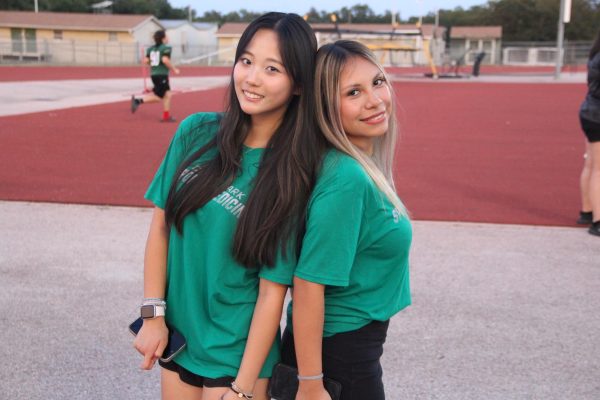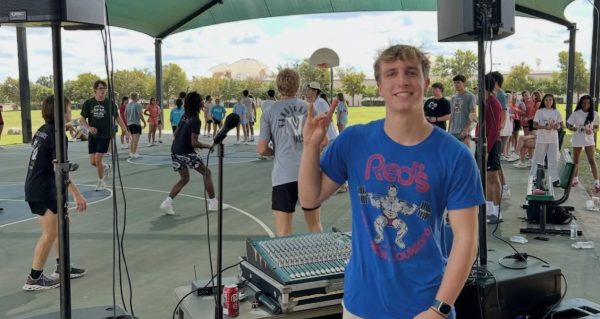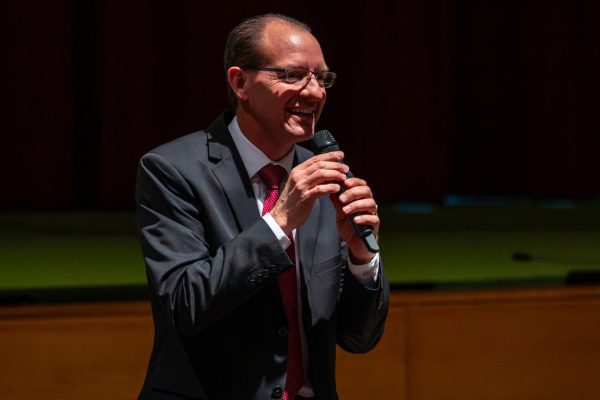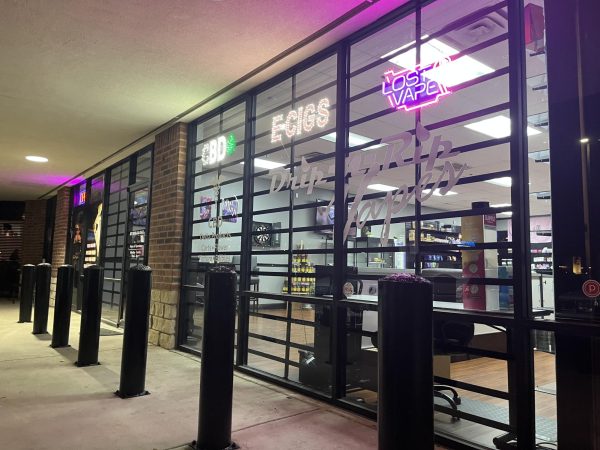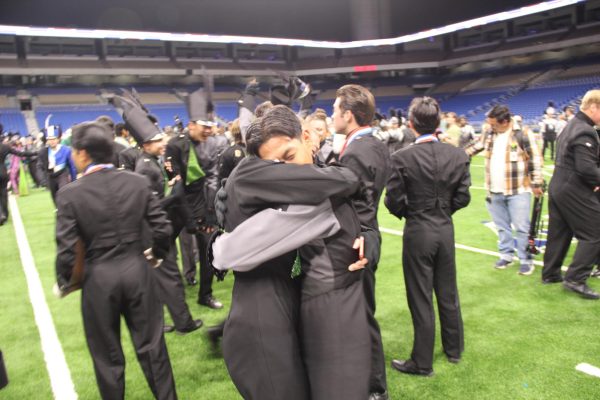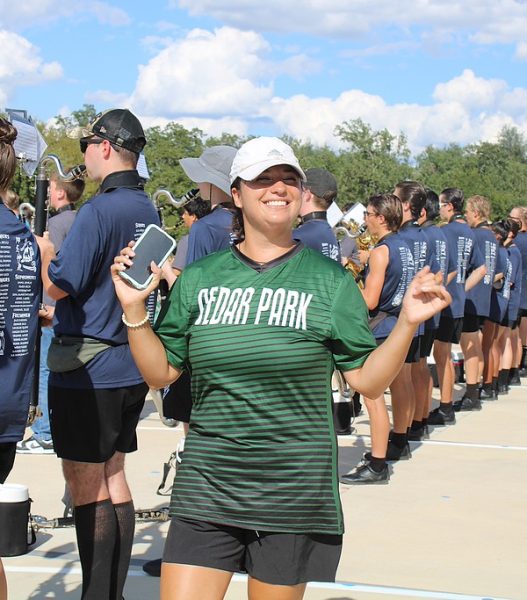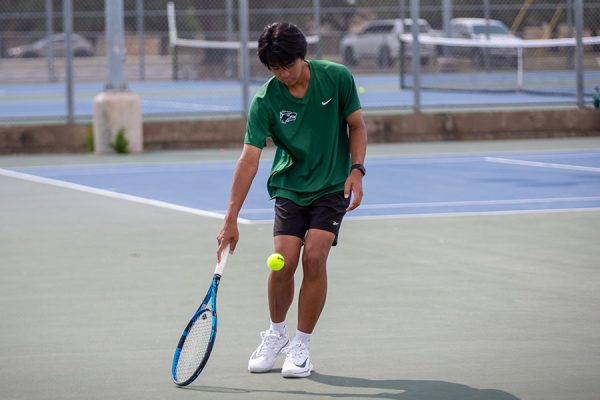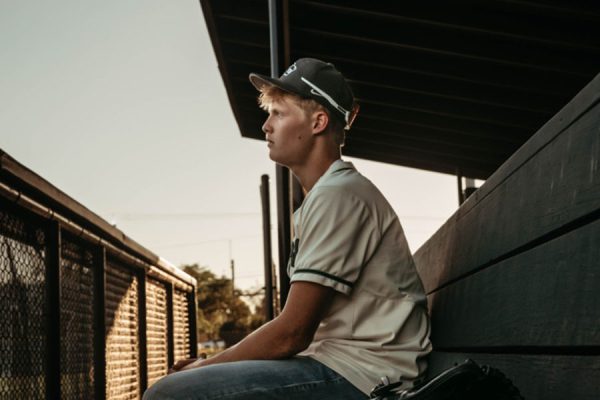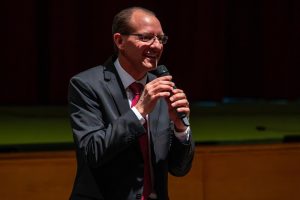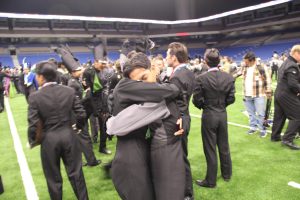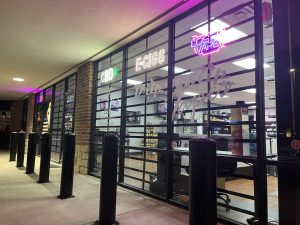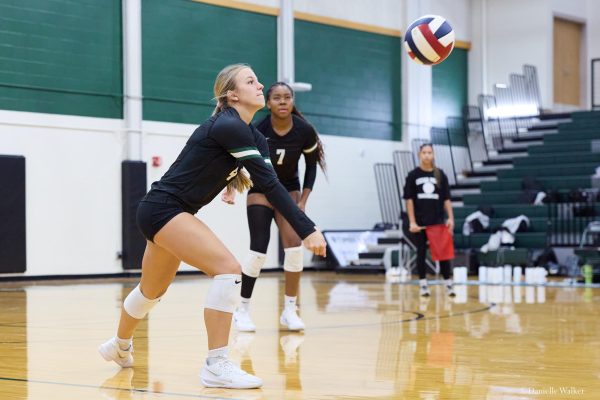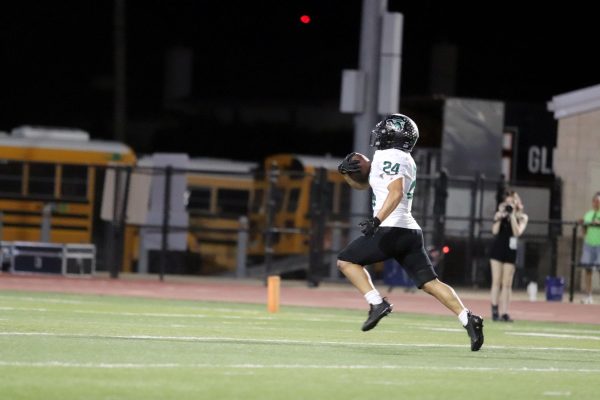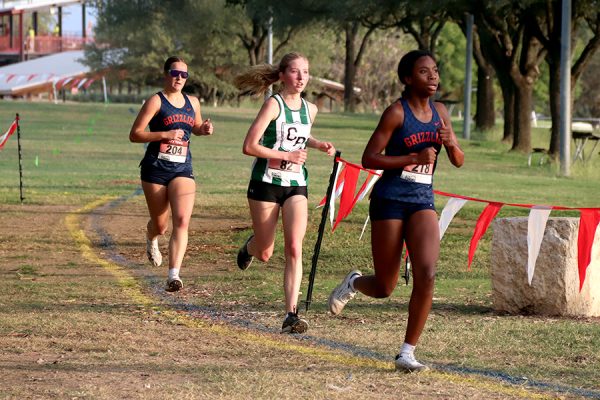Masters of Education
Teachers Explain Why They Chose Their Career
Chemistry teacher Lauren Buntin smiles for the camera. Buntin has been teaching at the school for two years and made the choice to become a teacher after doing a few internships in her original degree, environmental science.“I decided to be a teacher because I want to encourage students that they can accomplish anything they set their mind to,” Buntin said. “Sometimes school feels too hard and overwhelming, but I believe that having a teacher that believes in you can make all the difference.” (Photo Courtesy of Ryder Wilkinson)
February 20, 2023
Doctors save lives. Lawyers defend lives. And teachers, they change lives.
As students grow up and go to college, they reach a point when they must decide their future careers. Some choose to become statisticians, psychologists, engineers or scientists. Others choose to be teachers. English teacher Kristin Burke made her decision in her junior year of high school.
“I knew I wanted to become a high school teacher my junior year,” Burke said. “I had wonderful teachers who cared about who I was in and out of the classroom, [and this was] something I really needed at [that] time of my life. I decided I wanted to be that kind of person, that kind of support to kids who might be feeling like me. Of course, I have always loved reading and writing, so teaching English was a no-brainer.”
For Spanish teacher Rhonda Bynell, she said she thought the decision to teach Spanish was an obvious one.
“I am a teacher because it felt like the most natural and wonderful thing to do with my love for Spanish,” Bynell said. “From the time I learned my first Spanish word at age three, I loved the Spanish language, and from the time I began school at four, I think I loved school, notebooks, writing and pencils.”
While some little girls dress up their teddy bears and Barbies in princess dresses, wielding fairy wands, Burke sat hers down to read to them.
“When I was young, I had a chalkboard that I loved to write on,” Burke said. “And I was always reading to my dolls and stuffed animals. I even created a library in my closet so friends could check out books.”
While Burke decided to become a teacher in high school, it took a couple internships in college for chemistry teacher Lauren Buntin to realize it’s what she wanted to do, she said.
“I studied environmental science at Baylor University and did a few fun internships,” Buntin said. “One at a science museum and one at a zoo. I already loved science, but I didn’t really know what I was going to do with my degree.”
During her internships, Buntin was tasked in engaging with people about wildlife and conservation at the zoo and promoting creative and scientific thinking at the museum. This is what led her to become a teacher, according to Buntin.
“[It] sparked a whole new interest for me,” Buntin said. “That’s when I decided to pursue a career in teaching and ended up getting my master’s [degree in] education. [Now] my favorite part of teaching is connecting with students and coming up with ways to make science more meaningful and fun.”
Like Buntin, Earth and Space Science teacher Amy Durden did not originally plan to be a teacher and had instead planned on saving up for college for a couple of years. However, she said she ended up loving the connections she was able to make with her students and colleagues.
“[At first,] I decided I would teach for a few years to save up for medical school,” Durden said. “But I really enjoyed teaching and decided I would keep doing it until it became a job rather than a passion. 29 years later; I’m still doing it.”
While Burke said she doesn’t like the amount of time she has to spend grading and going to meetings, she enjoys the small moments when she gets to know her students better.
“One of my favorite parts of the day is greeting my students at the door,” Burke said. “It’s a brief opportunity to check in with each kiddo, share a smile, and let everyone on a positive path for learning.”
Teachers want to help their students do more than learn the required curriculum – they want to support them and help them do their best, according to Buntin.
“I decided to be a teacher because I want to encourage students that they can accomplish anything they set their mind to,” Buntin said. “Sometimes school feels too hard and overwhelming, but I believe that having a teacher that believes in you can make all the difference.”

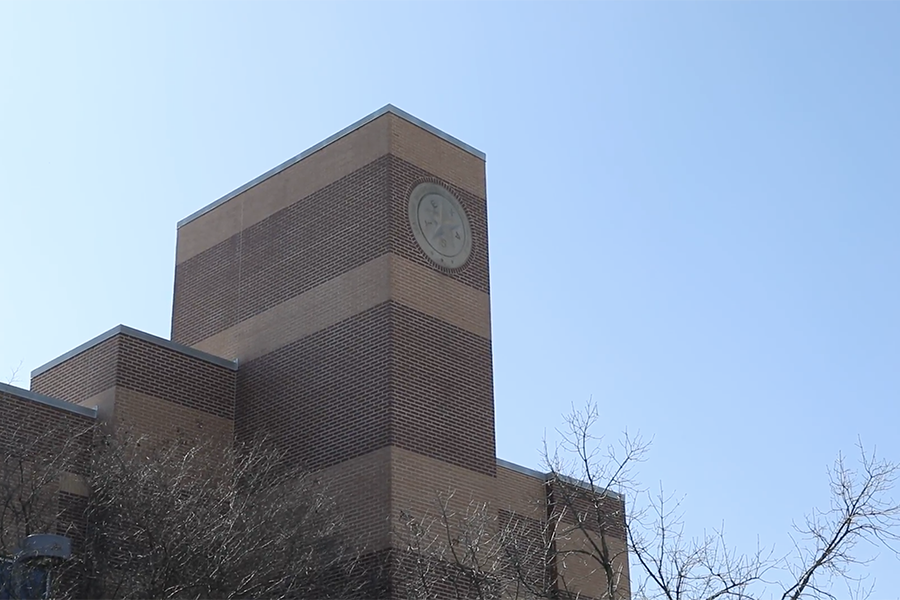
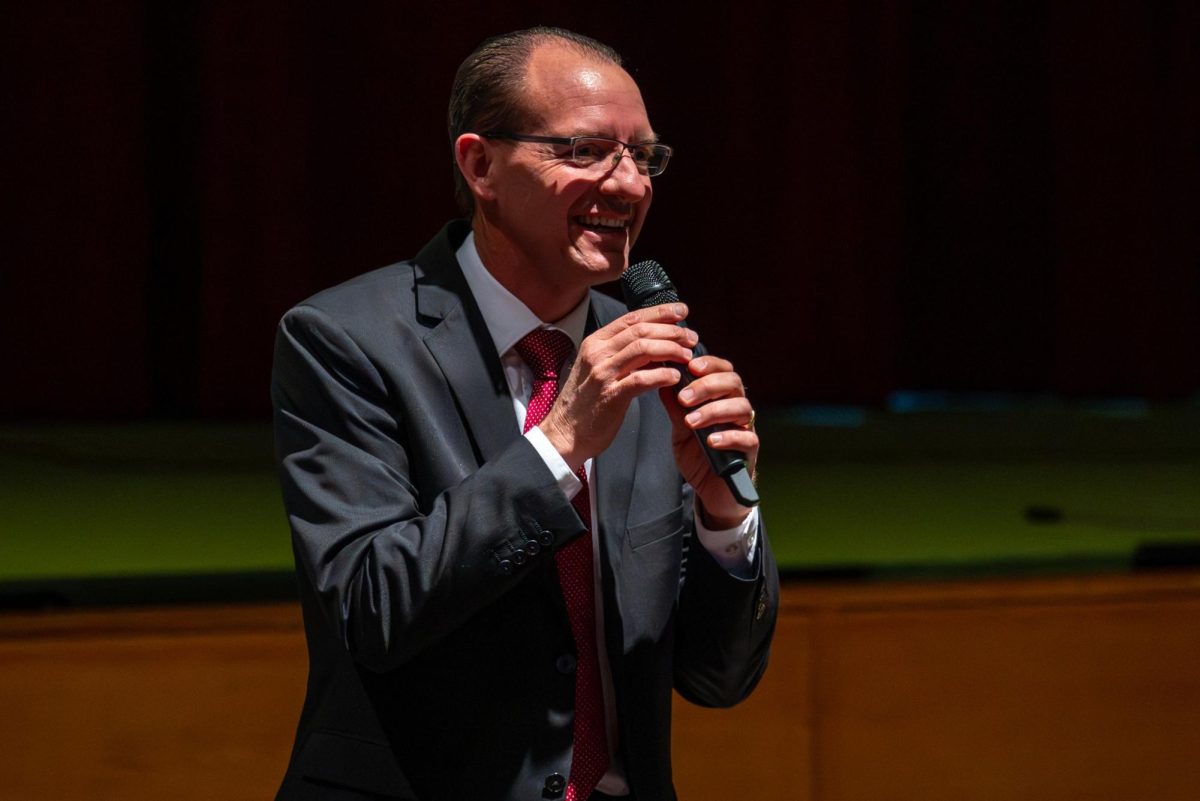
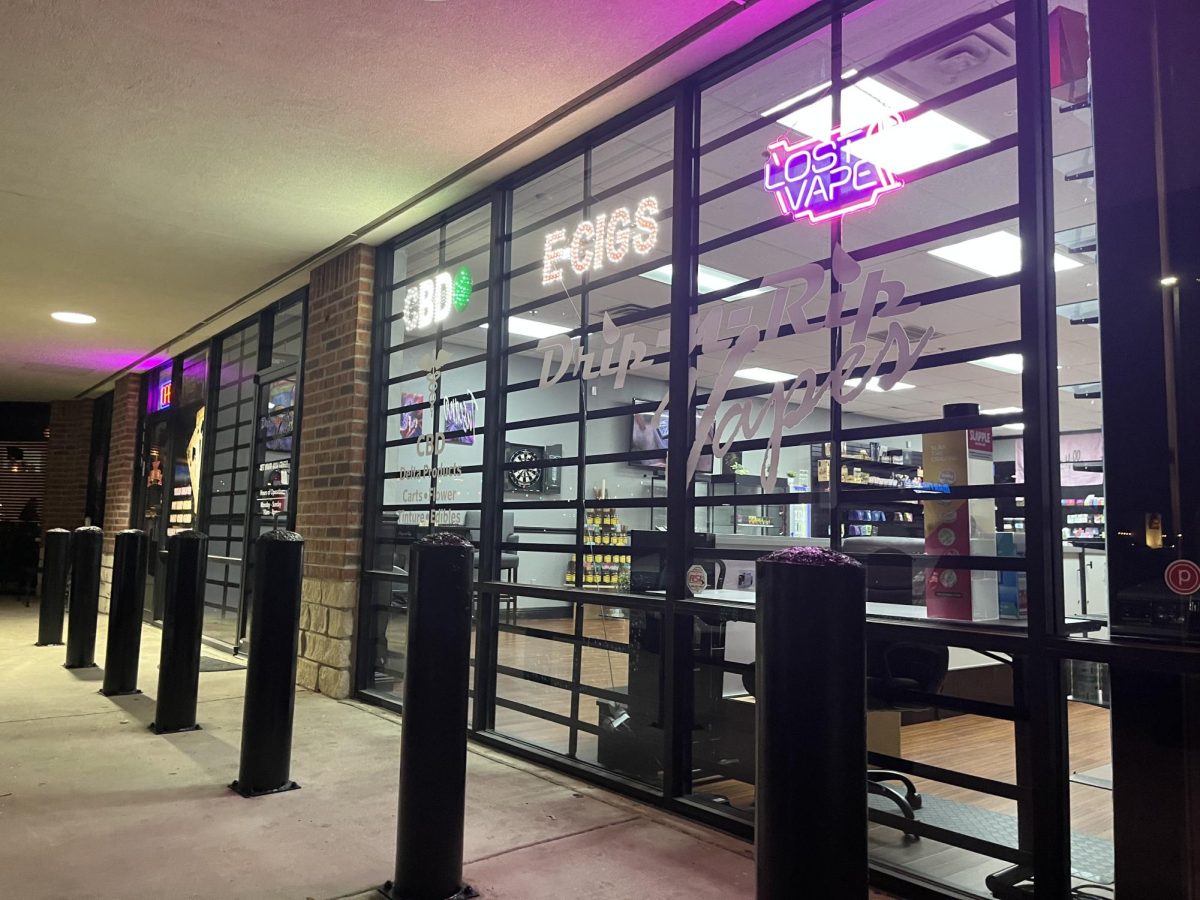
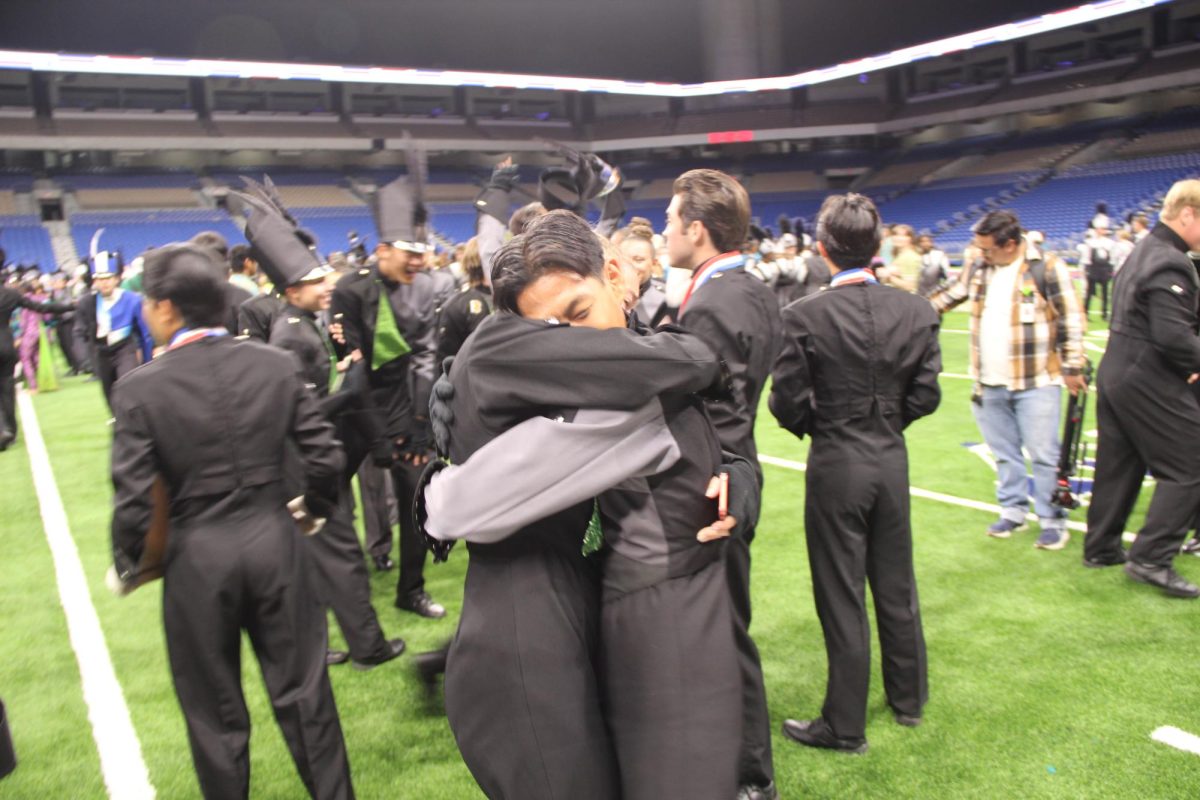
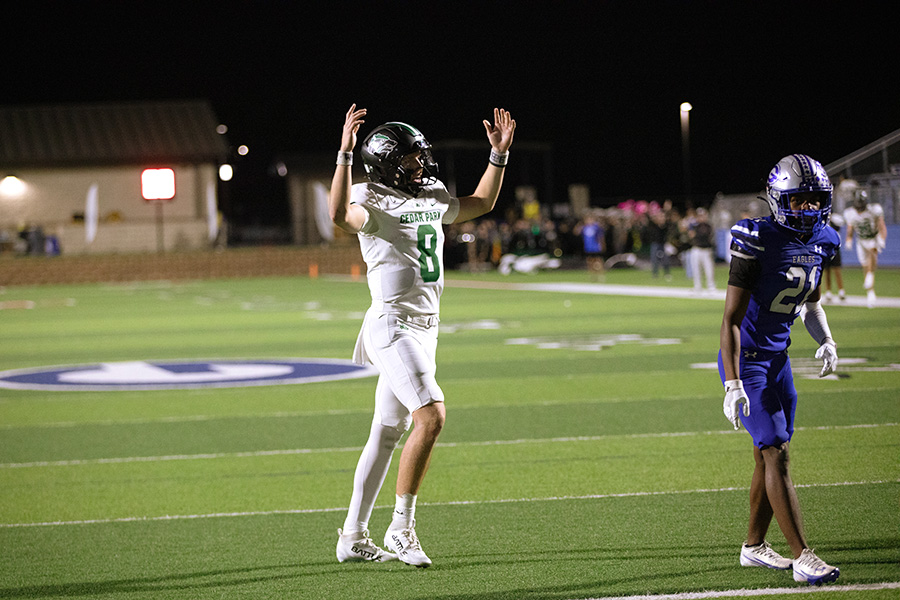
![Senior Jett Mckinney stores all the clothes in his own room, with half of it stored in his closet along with his personal clothes, and the rest taking up space in his room.
“There’s been times [when] there’s so much clothing stored here and it gets overwhelming, so I end up having to sleep somewhere else in the house,” Mckinney said.](https://cphswolfpack.com/wp-content/uploads/2025/11/DSC_0951-1200x800.jpg)
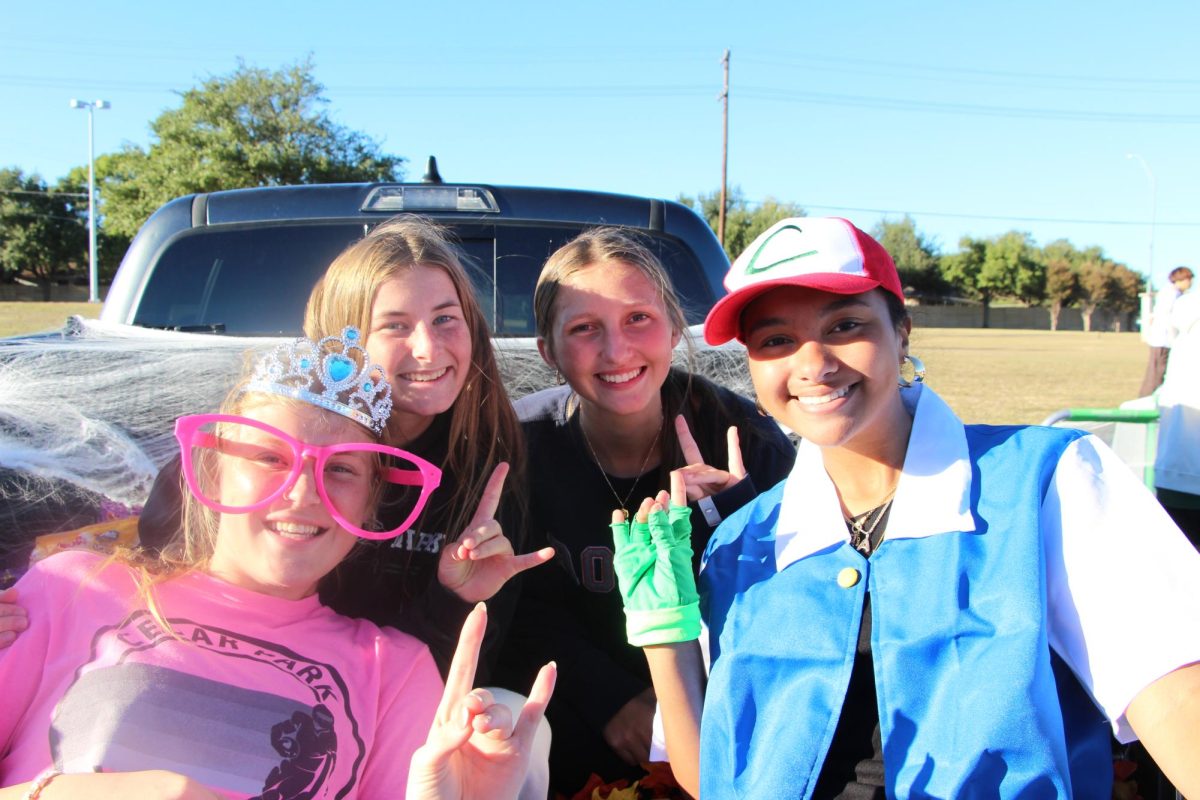


![Broadcast, yearbook and newspaper combined for 66 Interscholastic League Press Conference awards this year. Yearbook won 43, newspaper won 14 and broadcast took home nine. “I think [the ILPC awards] are a great way to give the kids some acknowledgement for all of their hard work,” newspaper and yearbook adviser Paige Hert said. “They typically spend the year covering everyone else’s big moments, so it’s really cool for them to be celebrated so many times and in so many different ways.”](https://cphswolfpack.com/wp-content/uploads/2025/05/edited-ILPC.jpg)

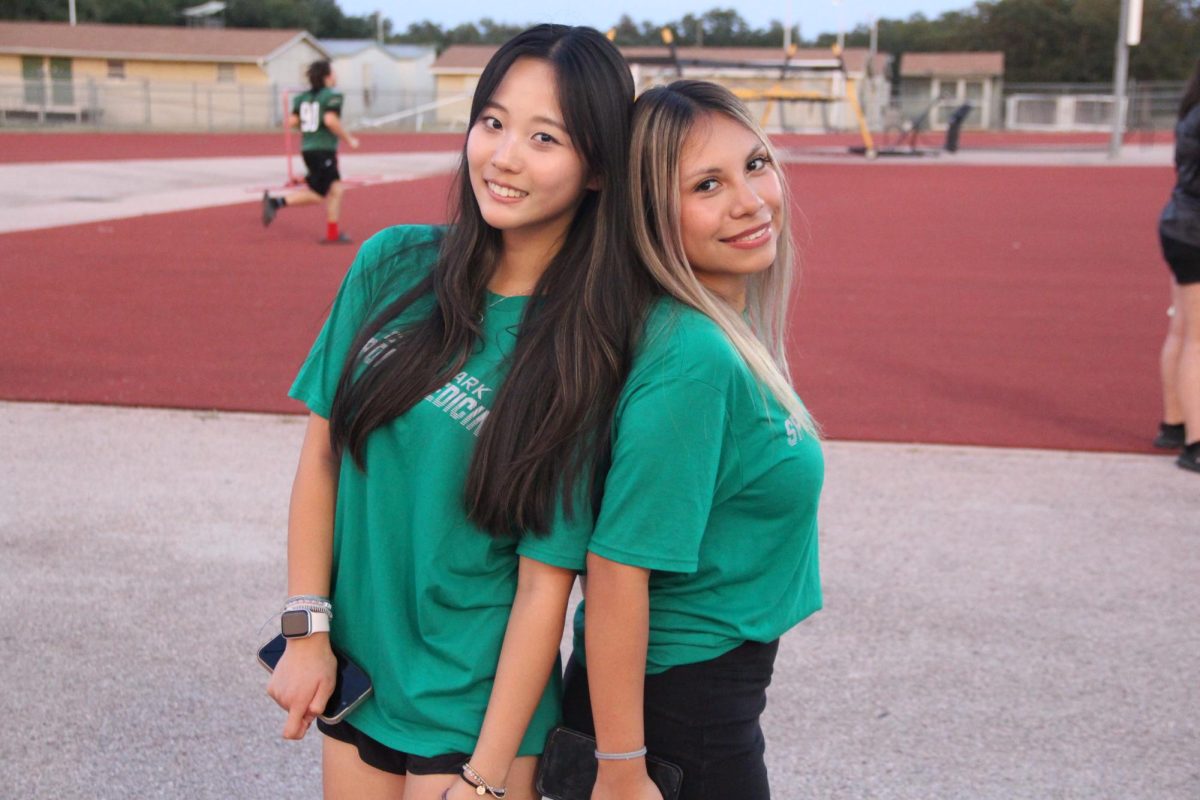


![Looking down at his racket, junior Hasun Nguyen hits the green tennis ball. Hasun has played tennis since he was 9 years old, and he is on the varsity team. "I feel like it’s not really appreciated in America as much, but [tennis] is a really competitive and mentally challenging sport,” Nguyen said. “I’m really level-headed and can keep my cool during a match, and that helps me play a bit better under pressure.” Photo by Kyra Cox](https://cphswolfpack.com/wp-content/uploads/2025/09/hasun.jpg)

![Bringing her arm over her head and taking a quick breath, junior Lauren Lucas swims the final laps of the 500 freestyle at the regionals swimming competition on date. Lucas broke the school’s 18-year-old record for the 500 freestyle at regionals and again at state with a time of 4:58.63. “I’d had my eye on that 500 record since my freshman year, so I was really excited to see if I could get it at regionals or districts,” Lucas said. “ State is always a really fun experience and medaling for the first time was really great. It was a very very tight race, [so] I was a bit surprised [that I medaled]. [There were] a lot of fast girls at the meet in general, [and] it was like a dogfight back and forth, back and forth.” Photo by Kaydence Wilkinson](https://cphswolfpack.com/wp-content/uploads/2025/03/Kaydence-2.7-23-edit-2.jpg)
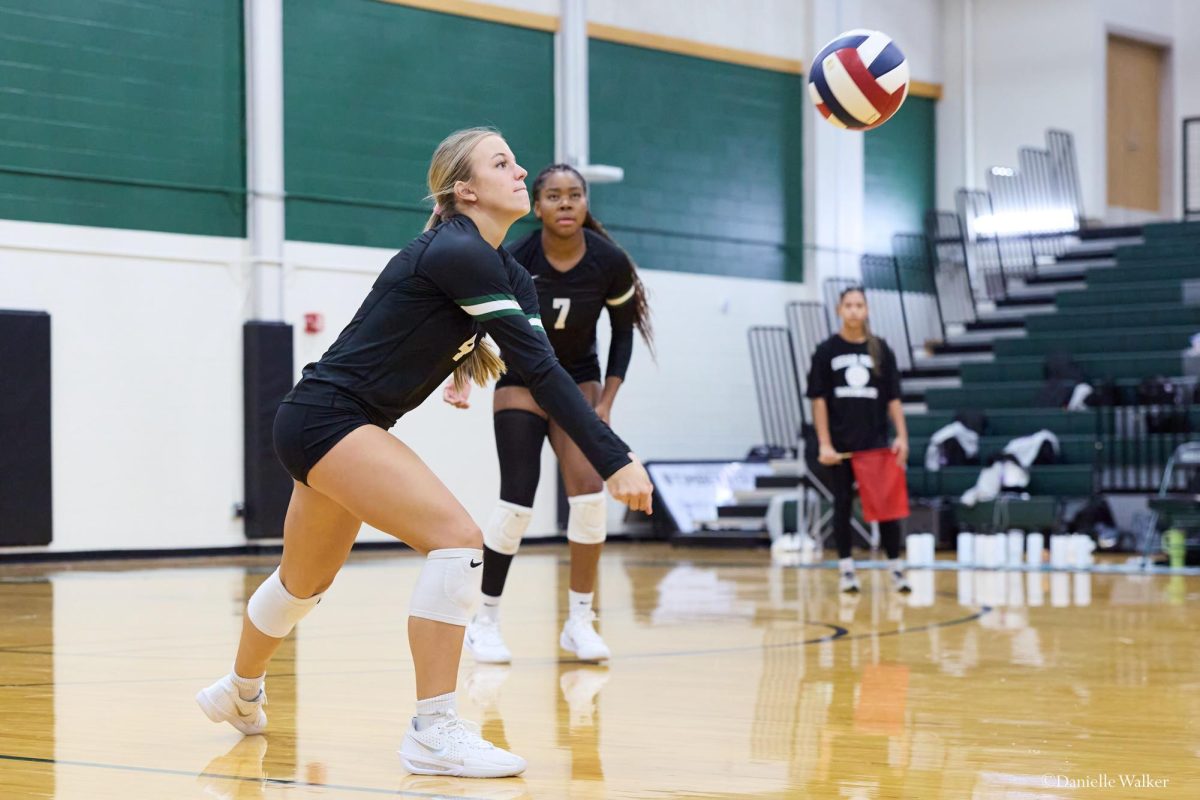

![As her hair blows in the wind, senior Brianna Grandow runs the varsity girls 5K at the cross country district meet last Thursday. Grandow finished fourth in the event and led the varsity girls to regionals with a third place placement as a team. “I’m very excited [to go to regionals],” Grandow said. “I’m excited to race in Corpus Christi, and we get to go to the beach, so that’s really awesome.” Photo by Addison Bruce](https://cphswolfpack.com/wp-content/uploads/2025/10/brianna.jpg)

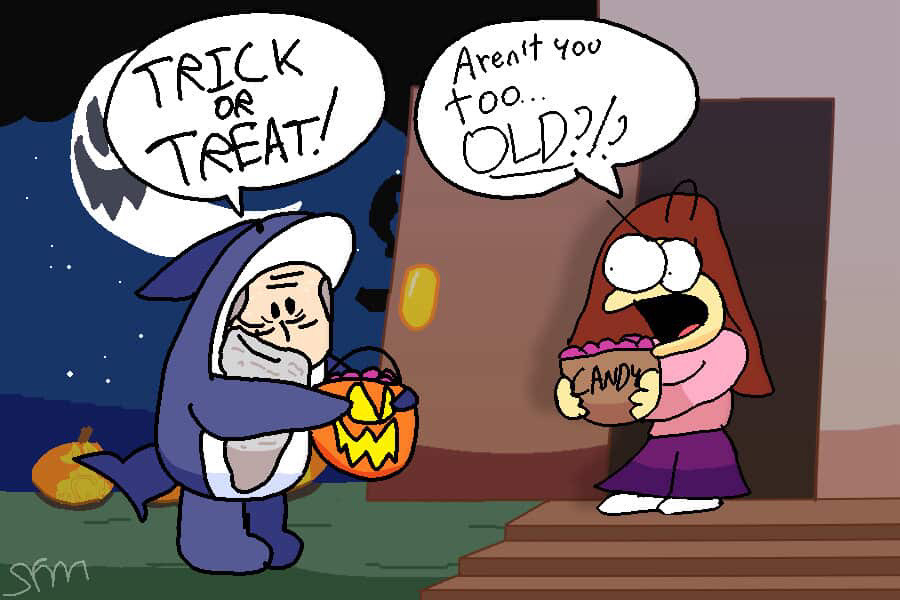













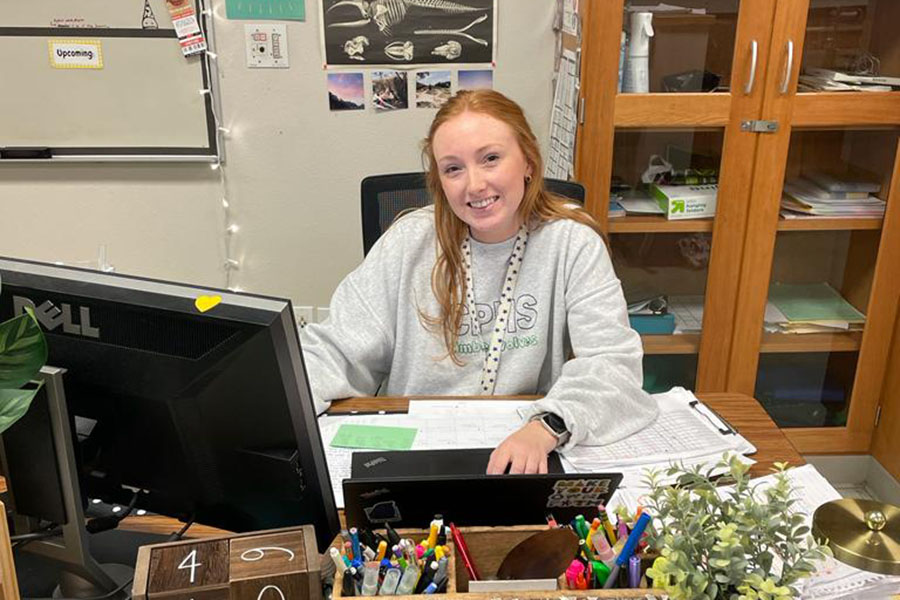
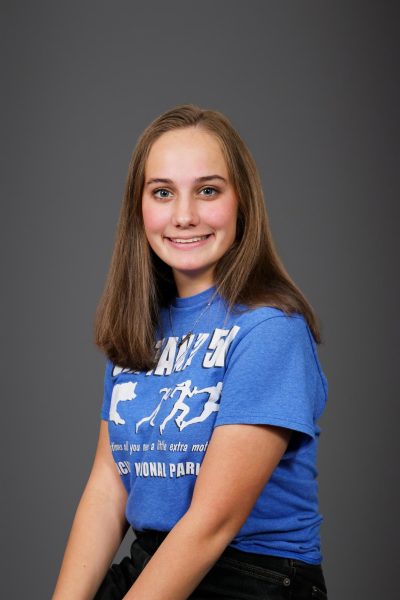
![Holding a microphone, baseball booster club president Chris Cuevas announces the beginning of the annual cornhole tournament. The event has been held for the past two years and is designed to raise money for the baseball program in a fun way. “We’re a baseball team, so people love to compete,” Cuevas said. “So we figured we better do something that gets [their] attention. They want to compete. It’s not a hard sport to do, and we have all different [skill] levels [of participants].” Photo by Henry Mueller](https://cphswolfpack.com/wp-content/uploads/2025/11/Henry-715-1200x900.jpg)
